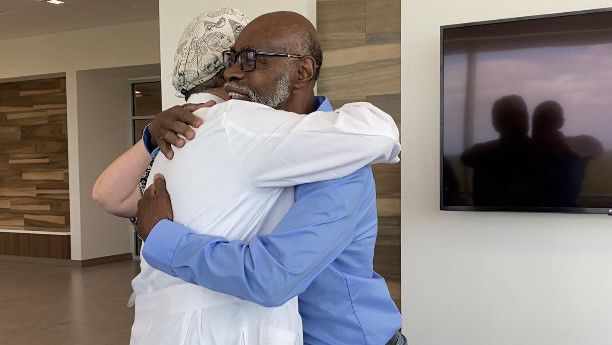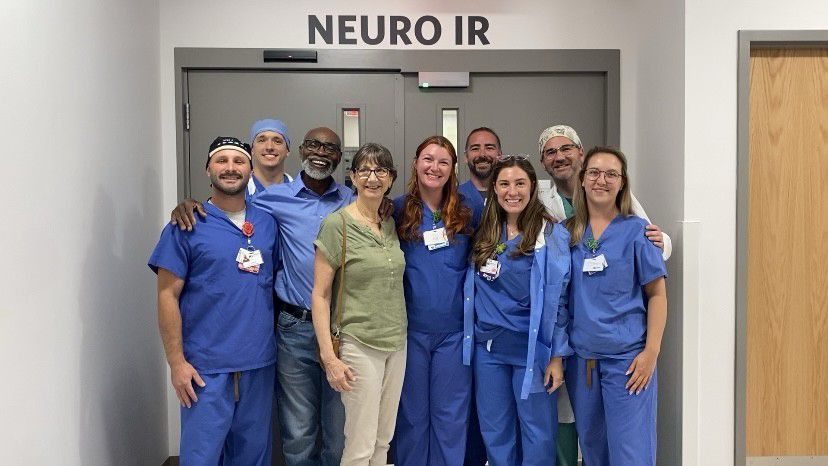May is National Stroke Awareness Month. When it comes to strokes, you may have heard the phrase “time is brain.” The National Institute of Health says every minute after a stroke, 1.9 million neurons are destroyed, which is why quick recognition of a stroke and prompt medical care are so important.
For Novant Health’s Director of Neurosurgery, Dr. Jeff Beecher, “Time is Brain” are words to live by.
“Everybody always hears that time is brain,” Beecher said. “That it’s part of the 'Be F.A.S.T.' motto if you will, it’s the t for time, and it’s very, very important.”
In the United States, more than 795,000 people have a stroke every year.
“I went to medical school to be a neurosurgeon, and that’s because I knew I wanted to make a direct impact on people’s lives,” Beecher said.

For Chuck Carree, a patient of Beecher’s, the impact is clear. He had a stroke last December, his wife Paige Owens quickly recognized the signs, something that helped get him to the care of Beecher and his team as quickly as possible.
“I knew what to do,” Owens said. “And I was able to say to the 911 dispatcher that I think my husband is having a stroke.”
She was able to recognize the signs of a stroke and knew when to call 911, which can make all the difference in getting stroke patients the care they need and quickly. But getting a patient to the hospital quickly is only half the battle, the rest depends on care, and Owens says she’s incredibly grateful for the team that saved him.
“Within 18 hours, I was sitting with my husband as I knew him,” Owens said. “I had my husband back.”
While she may have had to wait 18 hours, the actual operation was much quicker.

“Fortunately in this situation, we were able to do it in about five minutes, it sounds like, and it’s very, very fast,” Beecher said. “It means from the moment we put the sheath into his radial artery, we got the clot out in that five-minute timeframe, and that’s awesome, I’m really, really proud of that.”
Carree is happy and healthy, and for the first time ever, able to say thank you to the Team at Novant Health that saved his life — a message that lets Beecher know he’s made the impact he’s always hoped to.
“It really goes to your heart,” Beecher said. “And it really makes you proud of what you’ve done and really makes it easy to keep doing it.”
Recognizing the signs of a stroke and knowing when to call 911 can make all the difference in getting a patient the care they need and quickly.
To spot a stroke, remember Be F.A.S.T., which stands for means: Facial drooping, Arm weakness, Speech difficulties and Time to call emergency services.



